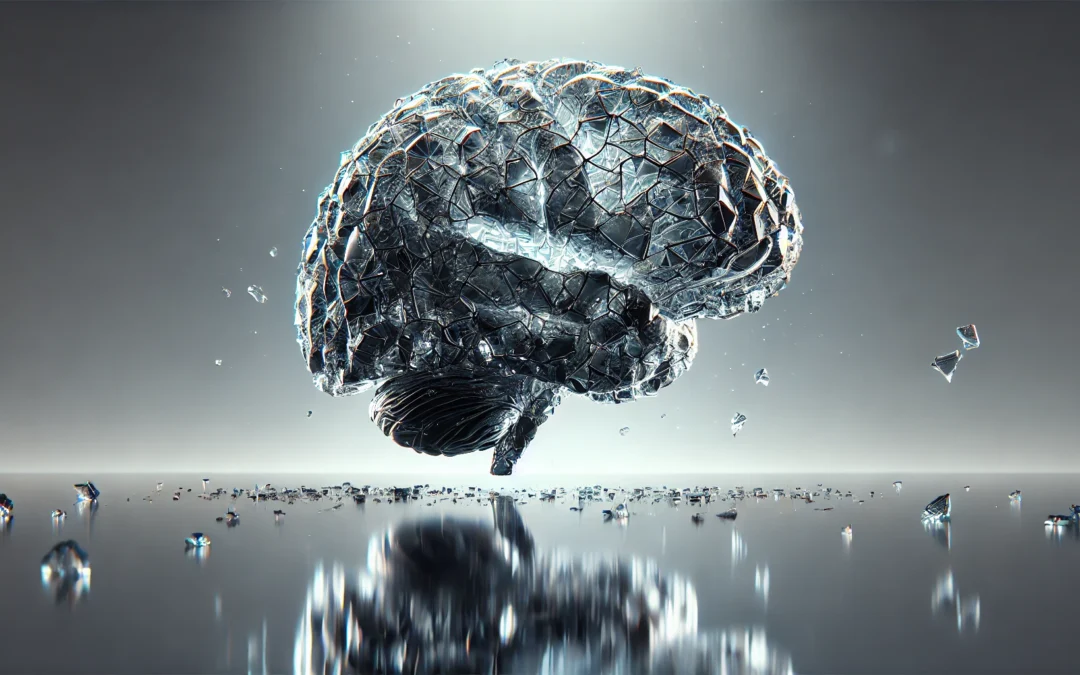Imagine you’re trying to solve a tricky puzzle or make a decision, and no matter how much you think about it, the answer seems just out of reach. This is a common experience that highlights one of the limits of logic. Logic is a powerful tool we use to make sense of the world, but it doesn’t always provide us with clear answers. Sometimes, the problems we face are too complex or involve too many unknowns for logic alone to handle. This is where the limits of logic become apparent, showing us that not everything can be neatly solved with reason and deduction.
In this article, we’ll explore 20 examples that illustrate the boundaries of logical thinking. From paradoxes that twist our understanding to real-life situations where logic falls short, these examples will show you that there’s more to problem-solving than just logical reasoning.
Understanding the Limits of Logic
The limits of logic refer to situations where logical reasoning cannot provide clear answers or solutions. Logic works by following strict rules and using facts or assumptions to reach conclusions. However, it cannot handle every kind of problem, especially those that are unclear, contradictory, or influenced by emotions or values.
These limits arise because logic depends on consistency and well-defined information. If the input is incomplete, ambiguous, or contradictory, logic cannot move forward. Additionally, some questions, like those involving personal beliefs or subjective experiences, fall outside the scope of logical reasoning.
This is not just an abstract idea. The limits of logic are seen in real-world issues. For example, logic can guide scientific thinking but cannot address emotional decisions or moral questions by itself. It shows us that while logic is powerful, it is not the only way to approach problems.
The Limits of Logic: 20 Illustrative Examples
Logic is a powerful tool for reasoning and problem-solving, but it has its limits. Below are 20 examples that highlight situations where logical thinking breaks down, from paradoxes to challenges in real-life decision-making. These examples illustrate why logic cannot always provide clear answers and show the importance of other approaches in understanding the world.
1. The Liar Paradox
The Liar Paradox is a classic example that illustrates the limitations of logic. It arises when a statement refers to itself in a way that creates a contradiction. Consider the sentence: “This statement is false.” If the statement is true, then it must be false as it claims, but if it is false, then it must be true. This paradox shows how self-reference can lead to logical inconsistencies that traditional logic struggles to resolve.
2. Gödel’s Incompleteness Theorems
Kurt Gödel, a renowned mathematician, demonstrated that in any sufficiently complex logical system, there are statements that are true but cannot be proven within the system. This means there are limits to what we can know through logic alone. Gödel’s work revealed that no single system can be both complete and consistent, highlighting an inherent limitation in formal logic systems.
3. The Sorites Paradox
The Sorites Paradox, also known as the paradox of the heap, challenges the boundaries of logic through vague concepts. It starts with the question: “When does a heap of sand become a non-heap if we remove grains one by one?” Each individual grain doesn’t seem to change the heap’s status, yet eventually, the heap disappears. This paradox shows how logical reasoning can falter when dealing with vague predicates.
4. Russell’s Paradox
Discovered by Bertrand Russell, this paradox questions the foundation of set theory. Consider the set of all sets that do not contain themselves. Does this set contain itself? If it does, it contradicts its own definition, and if it doesn’t, it should include itself. Russell’s Paradox illustrates a fundamental problem in logic regarding the definition and categorization of sets.
5. The Barber Paradox
The Barber Paradox describes a barber who shaves everyone in town who does not shave themselves. The question arises: does the barber shave himself? If he does, he must not, according to the rule, but if he doesn’t, he must shave himself. This paradox highlights the limits of logic when it comes to self-reference and rule formulation.
6. The Halting Problem
In computer science, the Halting Problem demonstrates a limit of logical reasoning in computation. It asks whether there is a program that can determine if any given program will halt or run indefinitely. Alan Turing proved that a general solution to this problem is impossible, showing the limits of computational logic and predictability.
7. The Unexpected Hanging Paradox
This paradox involves a judge telling a prisoner he will be hanged on a surprise day next week. The prisoner deduces that it can’t happen on the last day, as that wouldn’t be a surprise, and works backwards to conclude it can’t happen at all. Yet, when the hanging occurs on a previously ruled-out day, it is indeed a surprise. This paradox shows how human reasoning can lead to contradictions when predicting future events based on logic.
8. The Paradox of the Ravens
The Paradox of the Ravens, also known as Hempel’s Paradox, questions the logic of confirmation theory. It suggests observing a green apple can confirm the hypothesis “all ravens are black” because it’s logically equivalent to “all non-black things are non-ravens.” This challenges our intuitive understanding of evidence and confirmation, showing the limits of logical reasoning in scientific inquiry.
9. The Ship of Theseus
This philosophical paradox questions the identity of an object over time. If a ship has all its components replaced, is it still the same ship? Logic struggles to provide a definitive answer, as identity is not easily defined when parts change over time. This paradox highlights how logic can falter when dealing with concepts of identity and change.
10. Zeno’s Paradoxes
Zeno’s Paradoxes, like the famous “Achilles and the Tortoise,” question the logic of motion and infinity. Achilles can never overtake the tortoise in a race if the tortoise has a head start, as each time Achilles reaches where the tortoise was, the tortoise has moved a bit further. These paradoxes challenge our understanding of space, time, and infinity, showing how logical reasoning can lead to seemingly absurd conclusions.
11. The Paradox of Omnipotence
The Paradox of Omnipotence questions the concept of an all-powerful being. Can such a being create a rock so heavy that even it cannot lift it? If yes, then there is something it cannot do—lift the rock. If no, then there is something it cannot do – create the rock. This paradox highlights the limitations of logic in dealing with concepts like omnipotence, where any answer seems to contradict the very definition of being all-powerful.
12. The Lottery Paradox
The Lottery Paradox arises from the conflict between high probability and certainty. In a large lottery, it’s reasonable to believe any single ticket will lose, given the vast number of tickets sold. However, this reasoning leads to the paradoxical conclusion that no ticket will win, which contradicts the certainty that one ticket will. This paradox shows how logic can struggle with probabilistic reasoning and belief.
13. The Paradox of Analysis
The Paradox of Analysis challenges the notion of defining concepts. When analyzing the meaning of a term, a perfect analysis should be informative yet identical in meaning to the original term. However, if it is truly identical, it offers no new information, and if it is informative, it is not identical. This paradox reveals the difficulty in providing logical definitions that are both precise and enlightening.
14. Newcomb’s Paradox
Newcomb’s Paradox involves a game theory scenario where a player must choose between two boxes, one transparent and one opaque. The transparent box contains a visible amount, while the opaque box’s content depends on a predictor’s earlier prediction of the player’s choice. The paradox lies in the conflicting reasoning between expected utility and dominance principles, illustrating the limits of logic in decision-making under uncertainty.
15. The Paradox of Free Will
The Paradox of Free Will questions how free will can exist in a deterministic universe. If every action is determined by preceding events, how can individuals be free to choose otherwise? Conversely, if actions are not determined, they seem random, which also undermines free will. This paradox illustrates the challenge logic faces in reconciling free will with determinism.
16. The Paradox of Tolerance
The Paradox of Tolerance, proposed by philosopher Karl Popper, suggests that unlimited tolerance can lead to the demise of tolerance itself. If a society is completely tolerant, it must tolerate intolerance, which can destroy the tolerant society. This paradox shows how logic can struggle with balancing principles like tolerance and coexistence within a societal framework.
17. The Paradox of Fiction
The Paradox of Fiction questions how people can have emotional responses to fictional characters and events. We know they are not real, yet we feel genuine emotions. This paradox challenges logical reasoning about emotions, reality, and belief, showing how logic can falter in explaining human emotional responses to imagined scenarios.
18. The Paradox of the Preface
The Paradox of the Preface involves an author who acknowledges the possibility of errors in their book while simultaneously believing each statement within it is true. This paradox highlights the limits of logic in dealing with beliefs and knowledge, where acknowledging fallibility seems to contradict confidence in individual assertions.
19. The Paradox of Tristram Shandy
The Paradox of Tristram Shandy, inspired by the fictional character who writes his autobiography so slowly that he takes a year to document a single day, questions the logic of completing an infinite task. If given infinite time, can such a task ever be completed? This paradox challenges logical reasoning about infinity and time, showing how logic can lead to perplexing conclusions.
20. The Paradox of Self-Amendment
In legal theory, this paradox arises when a legal rule states it can amend itself. If the rule is changed, does it remain the same rule? If it doesn’t, how does it retain the authority to change itself? This logical issue highlights the difficulty of reconciling change and identity, especially in systems like law and governance.
What Makes Logic Limited? Key Factors Explained
Logic is an essential tool for reasoning, but it is not perfect. It operates within certain boundaries, and when those boundaries are pushed, logic can falter. Understanding the factors that limit logic helps us see why it sometimes fails to provide clear answers or solutions.
Logic relies on clear, precise definitions. When concepts or terms are vague, logical reasoning struggles to draw valid conclusions. For instance, consider the question, “When does a heap of sand stop being a heap if you remove grains one by one?” This ambiguity, known as the Sorites Paradox, shows how logic stumbles when dealing with imprecise terms. Everyday language often contains such vagueness, making strict logical reasoning difficult in practical situations.
Logic depends heavily on having complete and accurate information. When data is missing or uncertain, logic cannot function effectively. Imagine trying to solve a math problem without all the numbers—it becomes impossible to arrive at a solution. Similarly, real-world decisions often involve unknowns, which limits how far logical reasoning can go. This is why some problems require intuition or creativity to fill in the gaps.
Paradoxes challenge the very foundations of logic. These are situations where reasoning leads to contradictory or impossible conclusions. For example, the Liar Paradox (“This statement is false”) creates a loop that logic cannot resolve. Paradoxes expose weaknesses in logical systems, showing how they can break down when dealing with self-reference or conflicting assumptions.
Logic is objective, but human decision-making is often subjective. Personal beliefs, emotions, and values influence how we interpret situations. For example, logic might suggest the most efficient solution to a problem, but that solution might conflict with ethical or emotional considerations. A purely logical approach might ignore the human element, which is vital in many real-world scenarios.
Logical reasoning starts with premises, or assumptions, that must be accepted as true. If these premises are flawed or unclear, the entire argument collapses. For instance, in debates, people often disagree not because of logical errors but because they start from different assumptions. This highlights how logic is only as strong as the premises it is built on.
Understanding Paradoxes
Paradoxes are fascinating elements in the study of logic, often highlighting its boundaries and limitations. A paradox is a statement or situation that defies intuition by presenting seemingly contradictory or absurd outcomes. They play a crucial role in understanding the complexities of logic by challenging our conventional ways of thinking.
One classic example is the “liar paradox,” which involves a statement like “This sentence is false.” If the sentence is true, then it must be false as stated, but if it is false, then it must be true. This self-referential problem creates a loop that logic struggles to resolve. Such paradoxes push us to question the reliability and structure of logical systems.
Another intriguing paradox is the “Russell’s paradox,” discovered by philosopher and logician Bertrand Russell. It arises when considering the set of all sets that do not contain themselves. If such a set exists, does it contain itself? If it does, then by definition it should not; if it doesn’t, then it should. This paradox led to the development of more rigorous set theories to avoid such contradictions.
Paradoxes are not just abstract puzzles; they have practical implications, especially in fields like mathematics, computer science, and philosophy. They encourage deeper exploration and refinement of logical systems, ensuring they are robust enough to handle complex, real-world problems.
Understanding paradoxes helps us appreciate the nuances of logic and its application in various domains. By examining these thought-provoking scenarios, we gain insights into how logic operates and where it might falter, allowing us to build more effective and comprehensive frameworks for reasoning and problem-solving.
Read more: 40 Paradox Examples That Defy Intuition
Types of Problems Logic Cannot Solve
Logic is a valuable tool for solving many problems, but it is not a universal solution. Some problems are too complex, personal, or uncertain for logic to handle alone. Below are examples of situations where logical reasoning often falls short, and why.
Emotional Decisions
Logic can analyze facts, but it struggles with emotions. People make decisions based on how they feel, not just what makes sense logically. For example, choosing a partner, deciding to forgive someone, or dealing with grief involves deep emotions. Logic might suggest one path, but feelings often lead to another. This human element makes emotional decisions one of the clearest areas where logic alone isn’t enough.
Ethical Dilemmas
Ethics often involve conflicting values. Logic can outline possible outcomes, but it cannot decide what is morally right or wrong. Take the classic “trolley problem” – should you pull a lever to save five lives at the cost of one? Logic can weigh the numbers, but it cannot resolve the moral implications of sacrificing one life for others. Ethical dilemmas require judgment, compassion, and cultural understanding, all of which go beyond strict reasoning.
Creative Challenges
Creativity thrives on ideas that don’t always follow logical patterns. Writing a novel, composing music, or inventing something new often involves breaking rules and thinking outside the box. Logic is great for evaluating whether an idea works, but it rarely sparks original thought. Creative challenges highlight the need for imagination, intuition, and experimentation – qualities that logic cannot provide.
Interpersonal Conflicts
Disagreements between people often stem from differences in perspective, emotions, and values. Logic can help clarify misunderstandings, but it rarely resolves conflicts on its own. For example, in a family argument, logical reasoning might explain why one side feels wronged, but it won’t heal the emotional wounds or build trust. Empathy and communication play a much bigger role in resolving interpersonal conflicts.
Unpredictable Scenarios
Some problems involve too much uncertainty for logic to handle. Consider decisions based on incomplete information, like investing in the stock market or navigating a health crisis. Logic can analyze probabilities, but it cannot guarantee outcomes. In these cases, intuition, experience, and adaptability are just as important as reasoning.
The Incompleteness Theorems
The Incompleteness Theorems, introduced by Kurt Gödel in the early 20th century, are critical in understanding the intrinsic limits of formal logical systems. Gödel demonstrated that within any sufficiently powerful and consistent formal system, there are statements that are true but cannot be proven within the system itself. This finding shook the foundations of mathematics and logic, showing that no single system could be both complete and consistent if it is capable of expressing basic arithmetic.
This revelation has profound implications for the limits of logic. It suggests that there will always be truths that lie beyond our formal logical reach, challenging the notion that logic can provide a complete framework for understanding all mathematical truths. Gödel’s theorems imply that logic, while powerful, has inherent boundaries. These limitations are not just technical but philosophical, raising questions about the nature of truth and proof. For anyone exploring the limits of logic, understanding Gödel’s Incompleteness Theorems is essential.
The Human Element in Logical Reasoning
Logic is often seen as an objective tool. It’s supposed to be free from bias. But humans aren’t machines. Our brains bring emotions, intuitions, and experiences into the process. This can affect how we use logic. For instance, cognitive biases can skew our reasoning. Confirmation bias makes us focus on information that supports what we already believe. This can lead to flawed conclusions, even if the logical steps seem sound.
Moreover, logical reasoning often requires context. Humans interpret problems through their own lenses. What seems logical in one culture may not in another. Our background shapes our logical framework. This human element can be both a limitation and a strength. It allows for creativity and innovation. But it also means logic isn’t always universal.
Balancing logic with human intuition is crucial. This balance helps us make decisions that are not only rational but also empathetic. Recognizing the human element in logic is essential. It reminds us that logic is a tool, not the final answer. In daily life, blending logic with human insight often leads to better outcomes.
Read also: 20 Monotony Examples & Definition
The Most Popular on BitGlint

Top 100 Personal Items List
Everyone uses personal items in their daily lives, often without even thinking about them. From the moment you wake up...

30 Defiance Examples & Meaning
Defiance is something most people experience at some point in life. You feel it when you say no to something that...

Top 30 Desire Examples & Definition
Desire is a powerful force that drives much of human behavior, shaping our goals, dreams, and everyday decisions. It's...

100 Non-Digital Things List
In everyday life, there are still hundreds of objects, tools, and materials that exist completely outside the digital...

30 Examples of Attention & Definition
Have you ever noticed how a catchy tune can grab your attention, even when you're busy doing something else? It's...

60 Cultural Traditions Examples & Definition
Cultural traditions are part of daily life - whether people realize it or not. They shape what we eat, how we...

Top 30 Intimacy Examples & Meaning
Intimacy goes beyond physical touch or romantic moments. It’s about closeness, trust, and connection. In everyday...
Get Inspired with BitGlint
The Latest
40 Emotional Value Examples & Meaning
Why do some messages stick — while others are forgotten? Why do people choose one brand over another, even when the product is the same? The answer often comes down to emotional value. Emotional value is what makes a message feel human. It’s the emotional connection...

30 Teasing Examples & Definition
Teasing is a common part of human interaction. People tease in different ways, for different reasons. Sometimes it is friendly. Sometimes it can hurt feelings. Understanding what teasing means and seeing clear examples helps everyone handle these moments better....
40 Thought Experiments for Curious Minds
Some questions can’t be answered with a simple yes or no. Some problems don’t have a clear solution. That’s where thought experiments come in. They aren’t just old ideas from philosophy books. Thought experiments are tools we still use to think through problems, test...
100+ Things That Are Cold
Cold is something most people understand the moment they feel it. You step outside on a freezing morning. You grab a drink straight from the fridge. You touch a metal pole in the middle of winter. That sharp, biting sensation? That’s cold. This article brings together...

